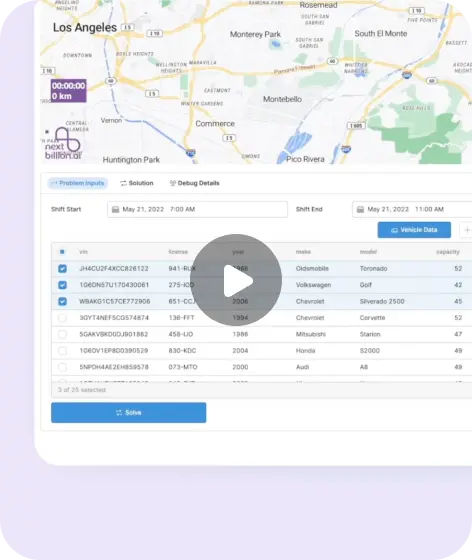Table of Contents
What is Field Service Dispatching?
Field service dispatching sends an engineer, specialist, or technician to fix a problem or provide an efficient solution to the customer. It is fundamental to streamlining operations and improving the customer experience in field service. Efficient dispatching processes can significantly improve service delivery, minimize response time, and enhance the customer experience.
In this process, tasks are assigned to field technicians based on their skills, location, and availability. With real-time tracking, efficient scheduling, perfect task management, and accessible communication, businesses can streamline their field service dispatching. It uses advanced algorithms to ensure that resources are allocated efficiently and customers’ needs are adequately addressed.
Benefits of Field Service Dispatching
Field dispatching service is an effective solution for the logistics industry since it enhances the customer experience, optimizes service quality, and smooths the flow of the supply chain. Some of its advantages are:
- Fast Response Time: Companies can assign the field service task to the nearest available technician using real-time tracking and efficient scheduling. This results in a quicker response time for customers and enhances their experience.
- Efficient Task Management: The advanced algorithms dispatch the task based on the technician’s availability, skills, and location. It ensures the right job is assigned to the right technician, which results in efficient task management.
- Better Communication: Mobile applications help technicians access all the information they need to complete field service tasks. It allows technicians to make well-informed decisions and maintain good communication with customers.
- Real-time Update: The dispatchers and managers monitor the movement and progress of the technicians using GPS trackers and provide customers with real-time updates.
- Data-driven Decisions: The data collected through field service dispatching is crucial for businesses since it provides valuable insights into customer satisfaction and technician performance. This can be used to make data-driven decisions and optimize the overall performance of customer service.
Challenges of Field Service Dispatching
Despite all its features, field service dispatching faces many challenges. Some of these are:
- Scheduling Conflicts: Scheduling conflicts arise due to the complexity of coordinating multiple appointments simultaneously. These conflicts can lead to delays, resulting in unhappy customers and impacting the company’s reputation.
- Lack of Communication: The communication gap between dispatchers and field technicians leads to understanding, inefficiency, and decreased customer satisfaction. When technicians cannot receive updates about the change in their schedule, it will frustrate them and impact their productivity.
- Poor Management: Managing a large pool of technicians with unique skill sets and experience is challenging. Efficient task management plays an important role in this situation.
Tips for Efficient Field Service Dispatching
The following tips can help to enhance the efficiency and productivity of field service dispatching.
- Prioritizing Tasks: The task should be prioritized based on urgency and technician availability. The highest-priority tasks should be scheduled quickly to fulfill customers’ needs.
- Utilizing Technology: Advanced technology helps automate and streamline the dispatching process. The software manages scheduling complexities, optimizes routes, and quickly provides real-time updates.
- Clear Communication: Maintaining clear communication between field technicians and the company is crucial to avoid misunderstandings. They should do regular check-ins with the field teams to ensure they have all the necessary information to complete their task efficiently.
- Reviews and Analysis: It is necessary to regularly review and update the dispatching processes to adapt to changing business and customer expectations. Factors such as dispatching efficiency, customer satisfaction, and technician productivity should be analyzed efficiently.
Field service dispatching is crucial for the smooth flow of the supply chain. It maintains communication among the different players involved in the supply chain and increases efficiency, service quality, customer satisfaction, and the company’s profitability. It is the core process of field service management and imperative for businesses. By understanding the challenges and using the right technology, companies can enhance the efficiency of their dispatching operations.
We know that every business is different and we care about your unique needs.
With NextBillion.ai's Map API you get- Large Distance Matrix API with a Matrix size upto than 5000*5000
- Optimal routes with accurate ETAs
- Flexible navigation SDK that's easy to integrate and ready to use for developers
- Quick and accurate location data
- Track and trace routes taken along with other map attributes
- Create custom tiles for your interactive maps. Personalized to fit your brand aesthetic.




